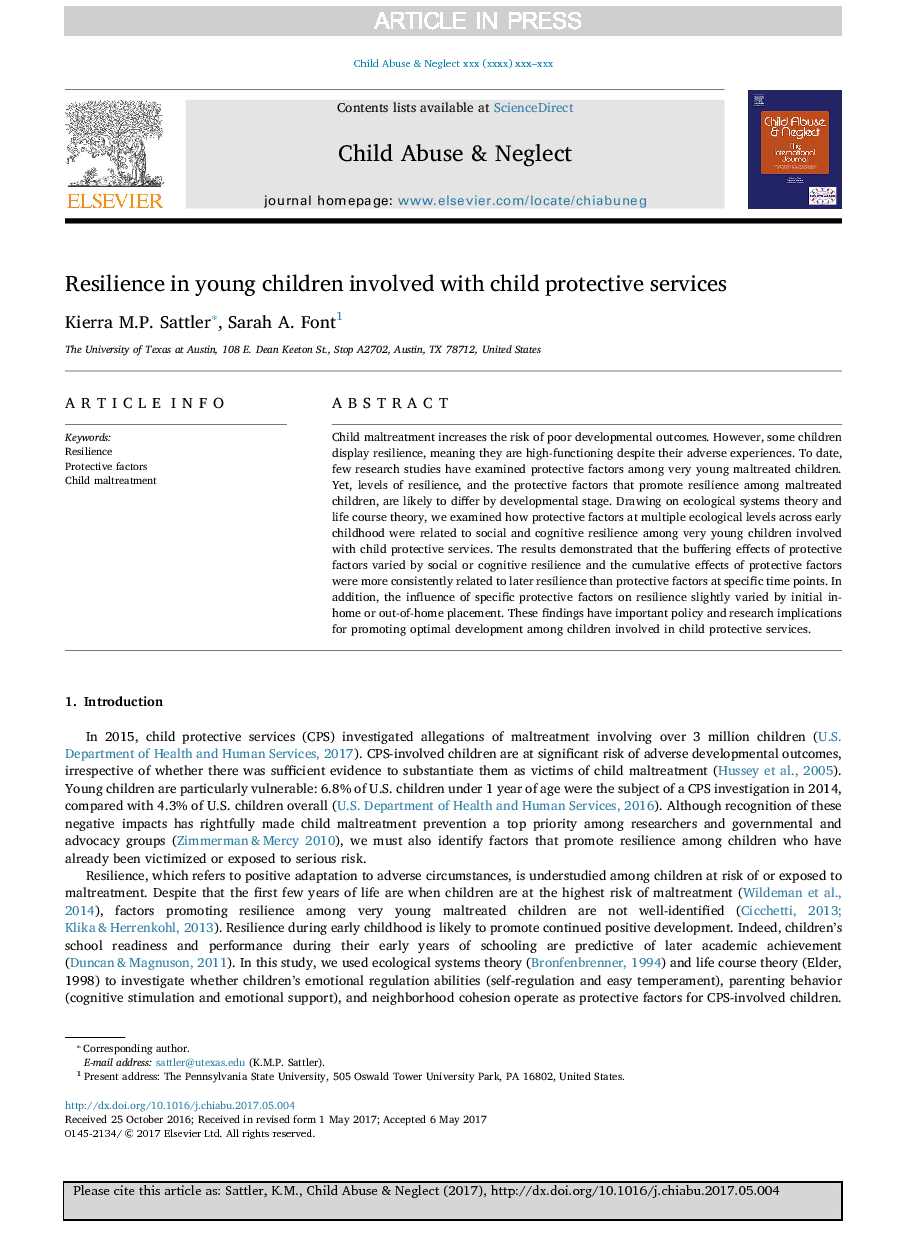ترجمه فارسی عنوان مقاله
انعطاف پذیری در کودکان جوان با خدمات محافظت از کودکان
عنوان انگلیسی
Resilience in young children involved with child protective services
| کد مقاله | سال انتشار | تعداد صفحات مقاله انگلیسی |
|---|---|---|
| 129348 | 2018 | 11 صفحه PDF |
منبع

Publisher : Elsevier - Science Direct (الزویر - ساینس دایرکت)
Journal : Child Abuse & Neglect, Volume 75, January 2018, Pages 104-114
ترجمه کلمات کلیدی
انعطاف پذیری، عوامل محافظتی، بدرفتاری با کودک،
کلمات کلیدی انگلیسی
Resilience; Protective factors; Child maltreatment;
ترجمه چکیده
بدرفتاری با فرزند موجب افزایش ریسک نتایج بدست آمده می شود. با این حال، برخی از کودکان نشان دهنده انعطاف پذیری هستند، به این معنی که عملکرد آنها با وجود تجربه های نامطلوب آنها بالاست. تا به امروز، تعداد کمی از مطالعات انجام شده، عوامل محافظتی را در میان کودکان بسیار متخلف، مورد بررسی قرار داده اند. با این حال، دامنه های انعطاف پذیری و عوامل محافظتی که سبب مقاومت در برابر کودکان متخلف می شوند، احتمالا در مرحله رشد متفاوت است. بر اساس تئوری سیستم های اکولوژیکی و نظریه دوره زندگی، ما بررسی کردیم که چگونه عوامل محافظتی در سطوح مختلف محیط زیست در دوران کودکی با انعطاف پذیری اجتماعی و شناختی در میان کودکان بسیار جوان درگیر با خدمات محافظتی کودک ارتباط دارند. نتایج نشان داد که اثرات بافری از عوامل محافظتی بوسیله انعطاف پذیری اجتماعی یا شناختی و اثرات تجمعی عوامل محافظتی، به طور پیوسته با انعطاف پذیری بعدی نسبت به عوامل محافظتی در نقاط زمان مشخص مرتبط است. علاوه بر این، تأثیر عوامل محافظتی خاص بر قابلیت انعطاف پذیری، با تغییر اولیه در خانه یا خارج از منزل متفاوت است. این یافته ها پیام های مهم سیاست گذاری و تحقیقاتی را برای توسعه مطلوب در میان کودکان درگیر در خدمات محافظت از کودکان دارد.

